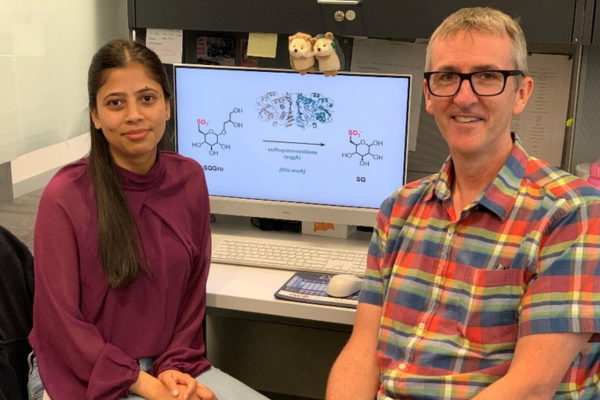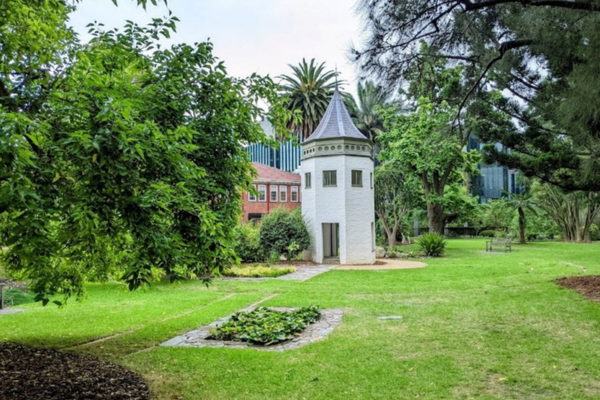Understanding gut health: Chemists uncover missing link in sulfosugar breakdown
The Williams Research Group applies organic chemistry to the study of biological systems, such as the breakdown of carbohydrate foods in our gut and the environment.
In 2023, the Group published a study on the discovery of a new enzyme that plays a pivotal role in the environmental breakdown of sulfoquinovose (SQ) – an unusual sulfosugar produced by leafy green vegetables – with potential to inform digestive health strategies.
The research commenced back in 2021, when Arashdeep Kaur, a PhD student from the Williams Group, began searching for novel bacteria that could grow on SQ. A soil sample collected from the University's System Garden was used to inoculate growth media containing SQ as the sole carbon source, and this led to the isolation of two Arthrobacter bacteria proficient in sulfosugar degradation. Genome sequencing revealed the absence of the key gene for sulfolipid hydrolysis in these bacteria. However, a conserved gene interpreted as an oxidoreductase was identified. This gene was found in other species predicted to grow on sulfolipids.

Arashdeep Kaur and Professor Williams
To explore the role of this mysterious oxidoreductase in sulfosugar metabolism, the protein was heterologously expressed and purified. The protein was shown, surprisingly, to be a specialised glycoside hydrolase termed sulfoquinovosidases (SQases), utilising nicotinamide adenine dinucleotide (NAD+) as a catalytic cofactor to transiently oxidize the substrate. This oxidation allowed for glycoside cleavage through an elimination reaction, followed by water addition, and subsequent reduction to give the product. The overall balanced equation is a hydrolysis reaction.
Structural studies supported the role of NAD+ as a cryptic catalytic cofactor in an oxidoreductive hydrolysis reaction. Bioinformatic analysis revealed that these novel SQases are widespread in marine bacteria suggesting a significant role in marine sulfur cycling.
The project, which started with a simple soil sample, resulted in the discovery of a new family of glycosidases – enzymes that catalyse the hydrolysis of glycosidic bonds in complex sugars. The discovery improves our understanding of microbial processes in the gut and may be used to inform strategies promoting digestive health.

The University's System Garden where the soil sample was sourced